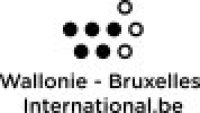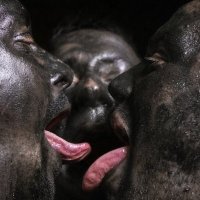Carte Blanche
LA CARTE BLANCHE 2024 : PIERRE LIEBAERT (Belgique)
The Carte blanche is a freedom we allow ourselves at Les Boutographies to invite a photographer to participate without going through the call for applications. Reiner Riedler, Christian Lutz, Camilla de Maffei and Pierre Liebaert are four authors who were initially shortlisted by our juries. Over the years, we have followed their projects closely, and wanted to show the evolution of their artistic work. This was the case in 2015 with Christian Lutz, when we exhibited his Trilogy at La Panacée, then for Reiner Riedler in 2016, with The Life Saving Machines, in partnership with the Faculty of Medicine, and for Camilla de Maffei in 2023, at the Pavillon Populaire. Pierre Liebaert, a two-time winner at Boutographies, was chosen to represent our festival in Arles last July to mark the 30th anniversary of our patron, Laboratoire Photon, and he is the guest artist on our Carte Blanche 2024.
WRITING WORKSHOPS
The richness of the themes addressed in the series Je crois aux nuits led us to propose this work as a source of inspiration for writing workshops. In collaboration with the Paul Valéry University ("Writing Workshop Facilitator" diploma) and the Faculty of Science (SCRIBES student association), we were able to develop the project along different lines: the exhibition itself, the meeting with the author and the writing workshops. Pierre Liebaert has already spoken directly to the students and will be giving a talk in May in the auditorium of the Musée Fabre to explain his approach. This cross-disciplinary approach between photography and literature is a way of putting to the test what we expect from a work of art: that it should arouse aesthetic emotion, broaden our field of vision and raise questions, and that it should be a place for dialogue and encounters between people, wherever they come from.
EXHIBITION
With this series devoted to very specific carnival rituals, Pierre Liebaert's work continues to walk on the edge of the abyss, looking at worlds that we know we have known for a very long time, and that we will never be able to circumvent with words, except those of the poem. When you go to an exhibition by Pierre Liebaert, you don't come away with information about an event or a news item, about a moment or a place: he doesn't document a subject, in the journalistic or academic sense of the term, but confronts that which has no name and yet designates us. He pushes our gaze away from what is comfortable and reassuring, towards the peripheries where what is in fact in the very midst of humanity emerges from the darkness.





